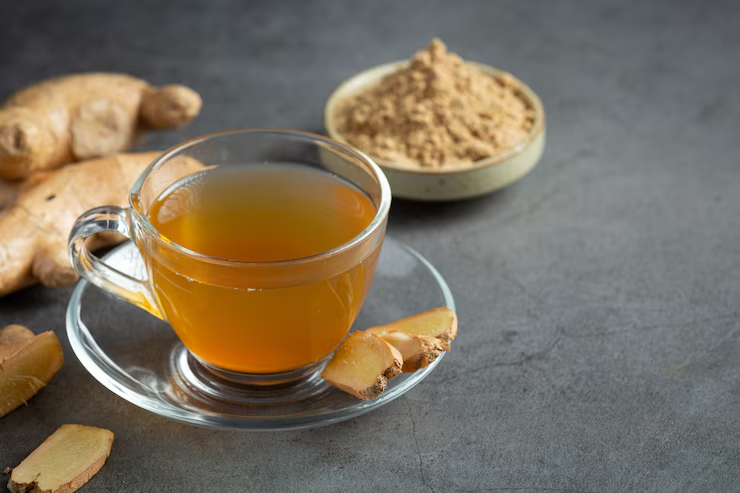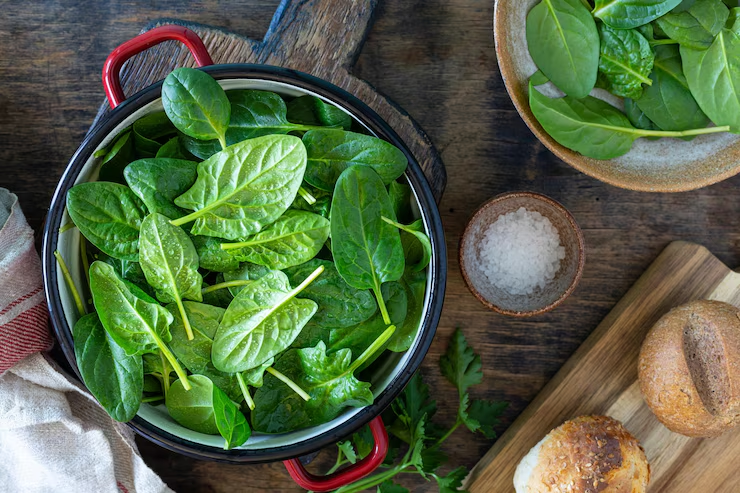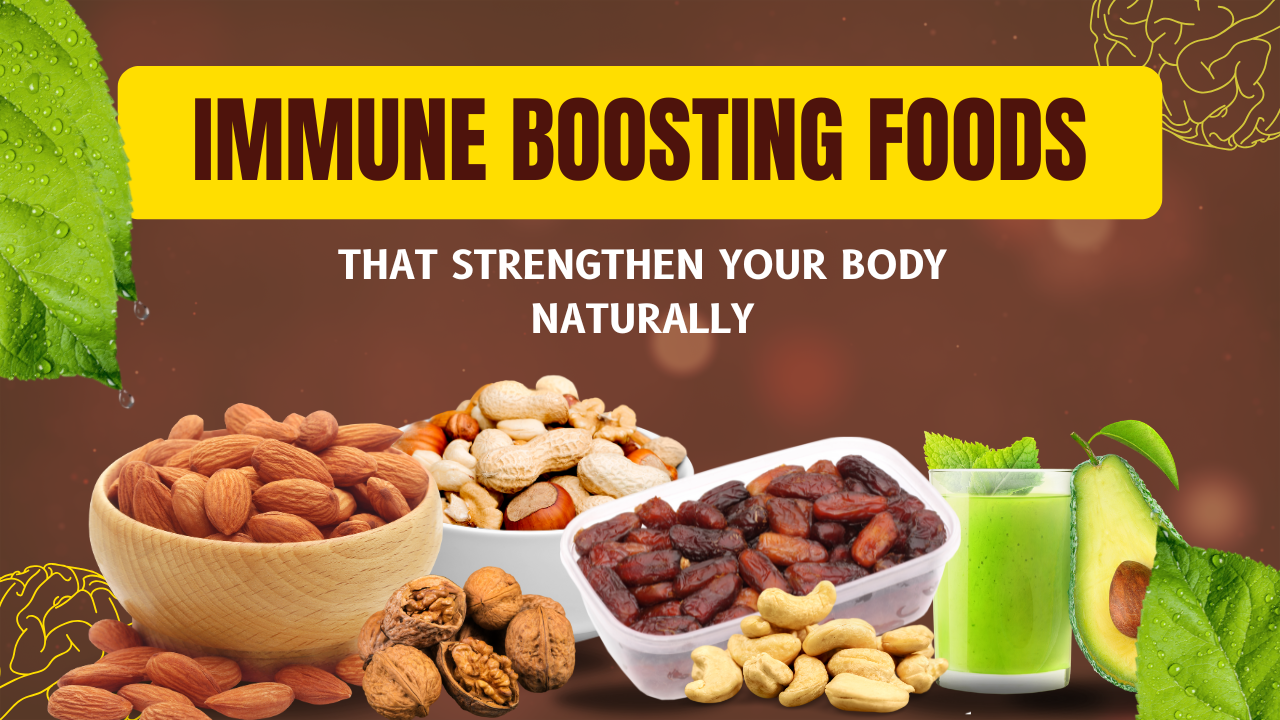In today’s fast-moving world, our bodies face constant threats from viruses, bacteria, and pollution. A strong immune system is our first and most reliable shield against these harmful invaders. It helps protect us by recognizing and fighting off anything that can make us sick.
The immune system is influenced by many things like genetics, lifestyle habits, and the environment. However, one of the easiest and most powerful ways to support it is through good nutrition. What we eat can make a big difference in how well our immune system works.
Adding immune boosting foods to your daily meals can help your body stay strong and healthy. These foods provide important nutrients that support the body’s defense system. In this article, we’ll explain how the immune system works, why it’s important, and highlight the top immune boosting foods that can help you stay protected and recover faster from illness.
Understanding the Immune System

The immune system is a complex group of organs, tissues, cells, and proteins that work together to protect the body from harmful invaders like bacteria, viruses, fungi, and toxins. It plays a key role in keeping us healthy by identifying and fighting off these threats. The system is divided into two main parts: the innate immune system, which offers immediate defense, and the adaptive immune system, which learns and improves its response over time for stronger, long-lasting protection.
Innate Immune System
The innate immune system represents the body’s first and most immediate protective mechanism against a wide range of harmful microorganisms. It provides a non-specific, generalized defense by recognizing common features of pathogens. This system includes physical and chemical barriers such as the skin, mucous membranes, and stomach acid, as well as immune cells like phagocytes and natural killer cells. Additionally, it triggers inflammatory responses to contain and neutralize invading organisms quickly.
Adaptive Immune System
The adaptive immune system is a highly specialized and intelligent defense mechanism that responds to specific pathogens the body has encountered in the past. It relies on the coordinated activity of lymphocytes, including B cells that produce tailored antibodies and T cells that destroy infected cells or coordinate the immune response. This system also forms memory cells, which retain information about previously fought pathogens, allowing the body to launch a much faster and stronger immune reaction upon re-exposure.
Together, these systems identify, attack, and eliminate foreign invaders, while maintaining a memory of past infections to prevent recurrence.
The Importance of a Healthy Immune System
A properly functioning immune system is essential for overall health and survival. Its roles include:
Protecting Against Infections:
The immune system plays a vital role in defending the body against harmful microorganisms such as bacteria, viruses, and fungi. It detects and destroys these invaders before they can cause serious illness, helping to prevent infections and maintain overall health.
Healing and Recovery:
Following injuries, infections, or surgical procedures, the immune system supports the body’s natural healing process. It reduces inflammation, repairs damaged tissues, and helps restore the body to its normal functioning state.
Eliminating Damaged Cells:
The immune system identifies and eliminates cells that are damaged, dysfunctional, or genetically altered. By removing these abnormal cells, it helps reduce the risk of chronic diseases, including various types of cancer.
Maintaining Balance (Homeostasis):
The immune system helps regulate and maintain internal stability within the body. It constantly monitors and adjusts to changes in the environment, ensuring that bodily functions remain balanced and properly coordinated.
A weak immune system makes the body vulnerable to frequent infections, chronic fatigue, slow wound healing, and more severe diseases. Therefore, maintaining immune health through lifestyle, sleep, exercise, and nutrition is vital.
Top Immune Boosting Foods
Citrus Fruits

Examples: Oranges, Lemons, Limes, Grapefruits, Tangerines
Why They Help:
Citrus fruits are one of the most effective immune boosting foods because they are packed with Vitamin C, an essential nutrient known for its powerful health benefits. Vitamin C helps increase the production of white blood cells, which play a key role in protecting the body against infections. These cells are part of the immune system’s defense against viruses and bacteria. In addition, Vitamin C acts as a strong antioxidant, helping to protect body cells from harmful molecules called free radicals. Including citrus fruits in your diet can help strengthen overall immune function.
How to Include: Add lemon to water, enjoy a grapefruit for breakfast, or snack on orange slices.
Garlic
Why It Helps:
Garlic is widely known as one of the most effective immune boosting foods due to its strong natural properties. It contains a sulfur-based compound called allicin, which is released when garlic is crushed or chopped. Allicin is believed to have powerful effects on the immune system, helping the body defend itself against viruses, bacteria, and other harmful microbes. This makes garlic an excellent addition to any diet focused on improving immune health.
In addition to fighting infections, garlic also enhances the function of important immune cells, such as natural killer (NK) cells. These cells are responsible for identifying and destroying infected or damaged cells in the body. Regular consumption of garlic may help reduce the severity and duration of illnesses while also supporting long-term immune function. Including garlic in your meals is a simple and natural way to strengthen your immune system.
How to Include: Use raw or lightly cooked garlic in soups, stir-fries, salads, and sauces.
Ginger

Why It Helps:
Ginger is one of the most valuable immune boosting foods due to its strong anti-inflammatory and antioxidant properties. These qualities help the body reduce inflammation, which is often linked to many health problems, including infections. By lowering inflammation, ginger allows the immune system to work more efficiently in fighting off harmful bacteria and viruses. This makes it a helpful natural remedy during cold and flu season.
In addition to supporting immunity, ginger is also known for soothing sore throats and easing nausea, making it especially useful when you’re feeling unwell. Its warming effect can also provide comfort and promote healing. Whether added to tea, meals, or taken on its own, ginger is a simple way to strengthen your body’s natural defenses and support overall health. Including ginger in your daily diet can be a gentle yet effective step toward better immune protection.
How to Include: Add to tea, smoothies, or dishes like curries and soups.
Yogurt and Probiotics
Why It Helps:
Yogurt is one of the most effective immune boosting foods because it is rich in probiotics—live, beneficial bacteria that help improve gut health. A healthy gut plays a key role in supporting the immune system, as it helps filter out harmful invaders and supports the growth of good bacteria. Probiotics in yogurt help maintain a balanced microbiome, which is essential for overall wellness and immune strength.
Since nearly 70% of the body’s immune system is located in the gut, taking care of digestive health is very important. Regularly eating yogurt can support digestion, reduce harmful bacteria, and strengthen your body’s natural defenses. It’s a simple and delicious way to boost your immunity, especially when combined with a balanced diet and healthy lifestyle. Adding yogurt to your daily meals can be a smart choice for better immune support.
How to Include: Choose plain, unsweetened yogurt with live and active cultures. Add fruits or honey for flavor.
Spinach

Why It Helps:
Spinach is a highly nutritious green leafy vegetable that qualifies as one of the top immune boosting foods. Packed with essential nutrients like Vitamin C, Vitamin A, beta-carotene, iron, and folate, spinach plays a significant role in supporting the immune system. These vitamins and minerals are vital for the production and function of immune cells, helping the body fight off infections and illnesses more effectively.
Additionally, the antioxidants in spinach help protect the body against oxidative stress, which can weaken the immune system over time. By reducing free radical damage, spinach supports long-term immune health. Including spinach in your diet can be a simple and effective way to nourish your body, strengthen your immune defenses, and enhance overall well-being.
How to Include: Eat raw in salads, or lightly sauté to preserve nutrients.
Almonds
Why They Help:
Almonds are a fantastic source of Vitamin E, a powerful fat-soluble antioxidant that plays a crucial role in supporting immune function. This nutrient helps protect immune cells from oxidative stress and supports the body’s ability to fight off infections. As one of the top immune boosting foods, almonds provide a natural way to strengthen your immune system.
In addition to Vitamin E, almonds are rich in healthy fats, which aid in the absorption of other fat-soluble vitamins that are important for overall health. These healthy fats also support heart health and help maintain energy levels. Including almonds in your diet not only boosts immunity but also promotes overall well-being, making them a simple yet effective choice for maintaining a strong and resilient body.
How to Include: Snack on a handful of almonds or add to cereal and yogurt.
Turmeric

Why It Helps:
Turmeric is one of the most powerful immune boosting foods due to its active compound, curcumin. Curcumin has strong anti-inflammatory and antioxidant properties, which help reduce inflammation in the body and protect cells from oxidative stress. This makes turmeric an excellent addition to any diet aimed at strengthening the immune system.
In addition to its anti-inflammatory effects, curcumin has been shown to boost immune cell activity, enhancing the body’s ability to fight off infections. It also supports the production of antibodies, which are essential for protecting the body from harmful pathogens. Including turmeric in your meals, whether in curry, smoothies, or teas, can help promote a healthier immune system and overall well-being.
How to Include: Use turmeric in curries, rice, tea, or take as a supplement after consulting a healthcare provider.
Green Tea
Why It Helps:
Green tea is one of the top immune boosting foods, packed with polyphenols, particularly epigallocatechin gallate (EGCG). This powerful antioxidant helps enhance immune function by neutralizing harmful free radicals and supporting overall immune health. EGCG has been shown to promote the activity of immune cells, making it an excellent choice for boosting the body’s natural defenses.
In addition to its polyphenols, green tea also contains L-theanine, an amino acid that may improve T cell activity. T cells play a crucial role in the immune system by identifying and eliminating infected cells. By including green tea in your daily routine, you can support both the strengthening of your immune system and the improvement of immune responses, helping your body stay resilient against infections.
How to Include: Drink 1–3 cups a day for optimal benefits.
Broccoli
Why It Helps:
Broccoli is an excellent example of immune boosting foods, packed with essential vitamins like C, A, and E, which are crucial for maintaining a strong immune system. These vitamins help protect the body from harmful invaders by supporting the production and function of immune cells. Additionally, broccoli is high in antioxidants, which help reduce inflammation and protect cells from oxidative stress, making it a great addition to any immune-boosting diet.
This nutritious vegetable is also a good source of fiber, which supports healthy digestion and detoxification. By promoting the removal of toxins from the body, broccoli further strengthens the immune system and aids in overall well-being. Including broccoli in your meals regularly can be a simple yet effective way to enhance immune function and support a healthy, balanced body.
How to Include: Eat raw, steamed, or roasted to preserve nutrients.
Red Bell Peppers
Why They Help:
Red bell peppers are among the top immune boosting foods, packed with a high amount of Vitamin C—three times more than oranges. Vitamin C is essential for boosting immune function, helping the body produce white blood cells that fight infections. This makes red bell peppers a powerful food for strengthening your immune system and protecting against illnesses.
In addition to Vitamin C, red bell peppers are rich in beta-carotene, which the body converts into Vitamin A. Vitamin A plays a vital role in maintaining the health of the skin and mucosal barriers, which act as the body’s first line of defense against pathogens. By including red bell peppers in your diet, you can enhance your immune defenses and support overall health with a simple, nutrient-packed food.
How to Include: Add to salads, stir-fries, or grill them for a flavorful side dish.
Lifestyle Tips to Maximize Immune Benefits from Foods
While diet is a cornerstone of immune health, several lifestyle practices enhance the effects of immune-boosting foods:

Stay Hydrated: Drinking enough water is essential for maintaining optimal body functions. It helps transport vital nutrients and oxygen to your cells while also flushing out toxins and waste products. Staying well-hydrated supports the overall health of your immune system, ensuring that it can function effectively and efficiently.
Get Enough Sleep: Getting 7 to 9 hours of quality sleep each night is crucial for supporting immune health. During sleep, the body undergoes repair and recovery, including the regulation of immune processes. Consistent rest allows the immune system to function properly and strengthens its ability to fight off infections.
Exercise Regularly: Engaging in moderate physical activity on a regular basis is beneficial for your immune system. Exercise improves blood circulation, helping immune cells move more freely throughout the body. It also enhances the performance of immune cells, making them more effective at identifying and fighting pathogens.
Reduce Stress: Chronic stress can weaken the immune system, making the body more vulnerable to illness. Managing stress through techniques like mindfulness, meditation, or engaging in enjoyable hobbies can help restore balance, improve immune function, and enhance overall well-being.
Avoid Smoking and Limit Alcohol: Smoking and excessive alcohol consumption can both negatively impact the immune system. Smoking damages the respiratory system, while alcohol weakens immune cell responses. Reducing or eliminating these habits can help improve your body’s ability to defend itself against infections and illnesses.
Immune-Boosting Meal Ideas
Here are some simple ways to combine immune-supporting foods into daily meals:
Breakfast: Greek yogurt with blueberries, almonds, and honey
Lunch: Spinach salad with red bell peppers, grilled chicken, and sunflower seeds
Snack: Citrus smoothie with ginger and turmeric
Dinner: Stir-fried broccoli and mushrooms with garlic and brown rice
Tea Time: Green tea with lemon and a touch of honey
Conclusion
A strong immune system is essential for maintaining overall health. While no single food or supplement can guarantee immunity, a well-balanced, nutrient-rich diet plays a key role in supporting the body’s natural defenses. By incorporating a variety of immune boosting foods, such as citrus fruits, garlic, ginger, yogurt, and leafy greens, into your daily meals, you can provide your immune system with the essential nutrients it needs to function optimally.
In addition to a nutritious diet, healthy lifestyle practices are crucial for promoting long-term health. Mindful eating, regular physical activity, proper hydration, and adequate sleep all contribute to maintaining a resilient immune system. By making immune-boosting foods a regular part of your diet, you can help strengthen your body’s defenses and improve overall well-being, empowering your immune system to perform at its best.
FAQs
- Can eating immune-boosting foods prevent illnesses like the flu or COVID-19 ?
Answer: While immune-boosting foods can support and strengthen your immune system, they cannot prevent or cure specific illnesses like the flu or COVID-19 on their own. A nutrient-rich diet can help your body respond more effectively to infections and recover faster, but it should be part of a broader health strategy that includes vaccinations, hygiene, sleep, stress management, and exercise. - How long does it take for immune-boosting foods to improve my immunity ?
Answer: There’s no immediate effect from eating one healthy meal. Consistent, long-term dietary habits are key to improving and maintaining immune function. Depending on your overall health and diet, some benefits—such as reduced inflammation or improved gut health—can start appearing within a few weeks, but full immune support develops over time. - Are supplements better than food for boosting immunity ?
Answer: Whole foods are generally better than supplements because they provide a combination of nutrients, fiber, and antioxidants that work together to support immunity. Supplements may be helpful in cases of specific nutrient deficiencies (e.g., Vitamin D or zinc), but they should not replace a balanced diet. Always consult a healthcare provider before starting any new supplement. - Can I eat too many immune-boosting foods ?
Answer: Yes, moderation is important, even with healthy foods. Overconsuming certain vitamins and minerals—especially through supplements—can have negative effects. For example, too much zinc can suppress immune function, and excess vitamin A can be toxic. Stick to recommended daily amounts and maintain a balanced, varied diet.


